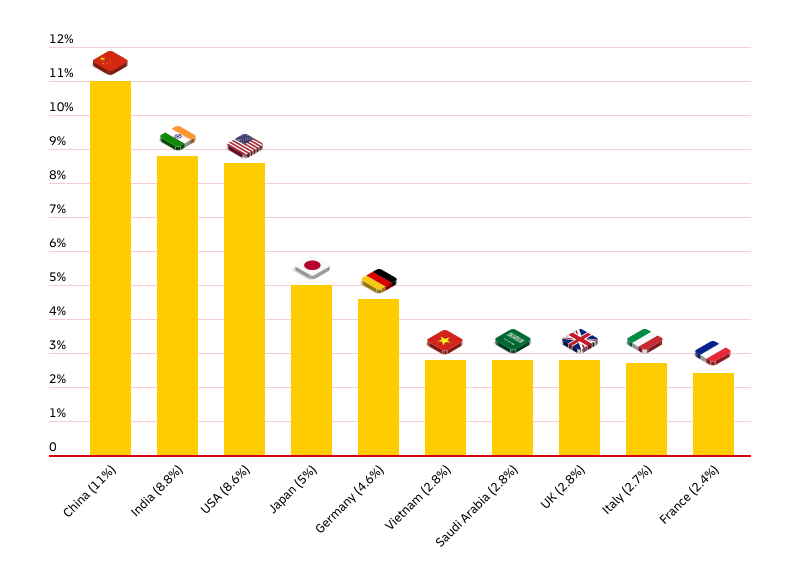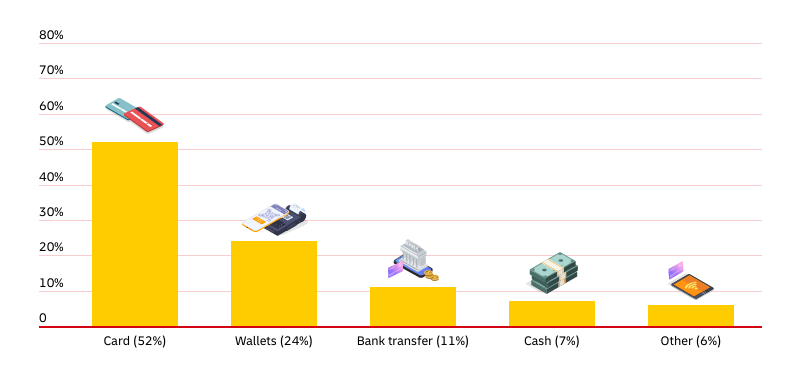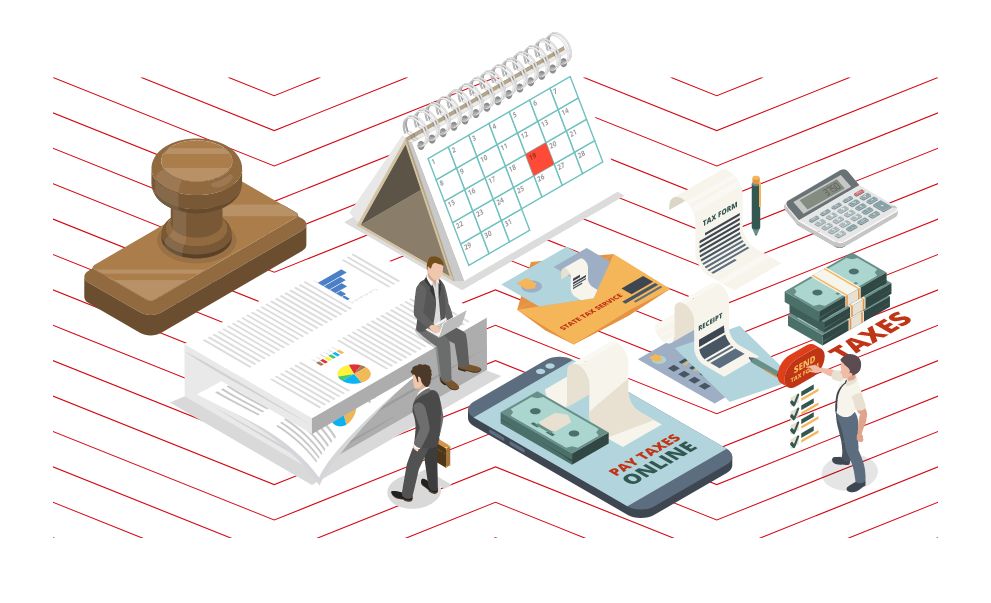Looking to export to the UAE? This guide can help.
The United Arab Emirates (UAE) is known for its prosperity and ambitious and transformational construction projects. It’s home to one of the world’s premier shopping and tourism destinations – Dubai – and to the Burj Al-Khalifa, the world’s tallest building.
The UAE’s 10 million people enjoy relatively high wages and a low cost of living. The economic outlook is positive, and consumers are spending online, especially on goods from overseas. So doing business in UAE looks like a good option and this guide provides you with insights, customer buying habits, and export and customs tips to help your business succeed within this key market.
Market Overview
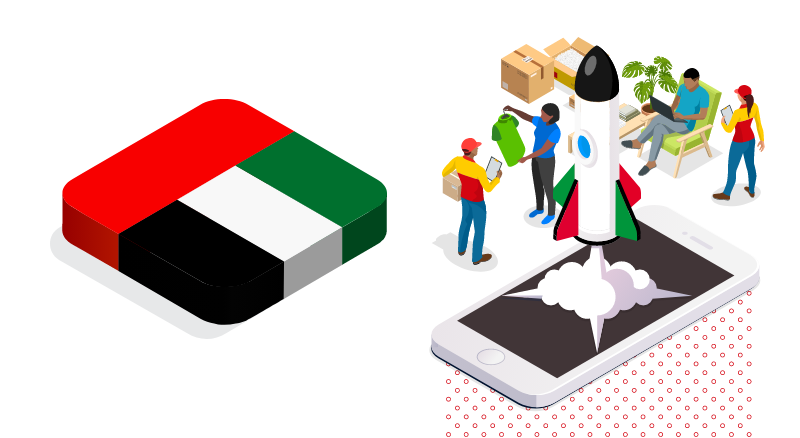
E-commerce revenue is set to rise by 7.66% CAGR between 2023 and 2027.
This is below the global average of 11.34%, but still strong – the UAE is a mature e-commerce market.(1)
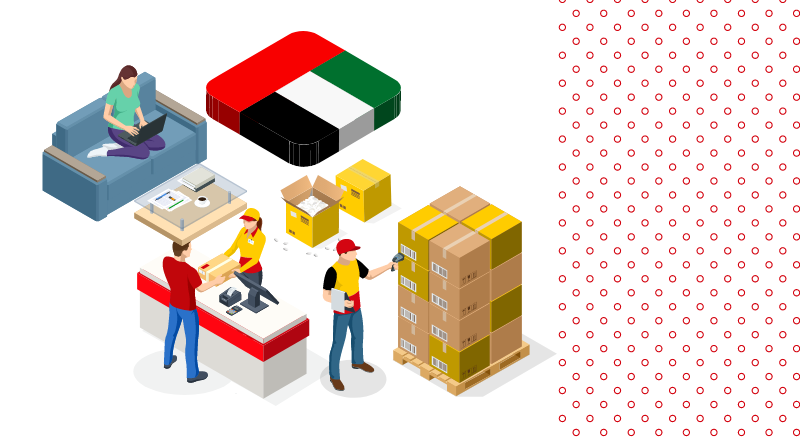
58% of Purchases are from overseas (2)
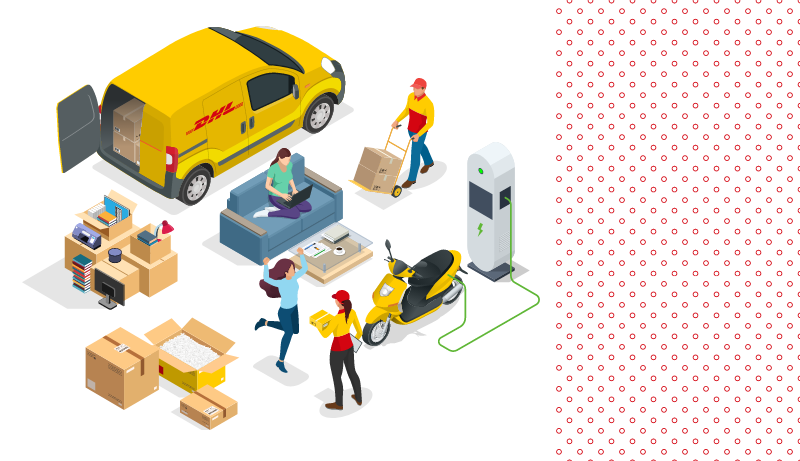
Nearly 9 out of 10 are expats (overseas)
This means there’s a huge opportunity for importing well-known goods from home nations.(3)
Internet habits in UAE
There is very high internet penetration in the UAE and mobile shopping is becoming more popular all the time. Most people are on social media, particularly Facebook, Instagram and TikTok. Amazon is localized while the Noon local online marketplace is also widely used. All this makes it a positive environment for e-commerce.
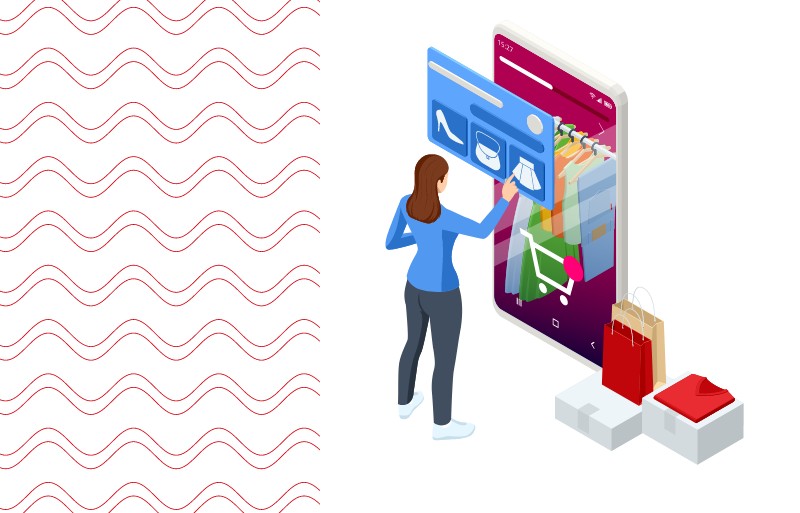
95.85% use internet mobile
Among the highest in the world.(4)

The UAE e-commerce market by segment(5)
In addition, international brands are popular for luxury and vintage items and supplements/health.
The countries UAE imports from most(6)
Popular payment methods for e-commerce(7)
Import regulations and customs clearance
Importing goods into the UAE is very straightforward:
B2C Shipments
- A De Minimis value of $270.00 is in place across the UAE
- Shipments below this value are only subject to VAT at 5%
- Above the $270.00 threshold, duty at 5% applies on the majority of products in addition to 5% VAT
- An Air Waybill and Commercial Invoice are required to clear shipments into the UAE
- B2C importers are not required to provide their ID information to facilitate customs clearance in Dubai
- In Abu Dhabi, B2C importers are required to register with Abu Dhabi customs as a one-off exercise to obtain an importer code
B2B Shipments
The same import rules, De Minimis values, duty and VAT rates apply for B2B shipments
Preferential duty tariffs for some countries
- Saudi Arabia
- Kuwait
- Bahrain
- Qatar
- Oman
- Jordan
- Egypt
- Iraq
- Lebanon
- Morocco
- Tunisia
- Palestine
- Syria
- Libya
- Yemen
- New Zealand
- Singapore
- Switzerland
- Norway
- Iceland
- Lichtenstein
Help and advice from the UAE government
If you’re considering exporting to UAE, you can get official advice, including helpful guides, from the Official Portal of the UAE government.
For information specifically about customs and duties, you can contact the Federal Customs Authority.
Prohibited and controlled goods
This list is not exhaustive:
Prohibited goods
- Controlled/recreational drugs and narcotics
- Gambling tools and machines
- Items used in black magic, witchcraft and sorcery
- Publications/artworks that challenge Islamic values
- Pirated content
- Counterfeit currency
Controlled goods
- Food products need permits
- Meat and poultry need Halal slaughter certification
- Medicines need approval from the Ministry of Health
For more detail, visit the Dubai government’s Prohibited and Restricted goods page.
Buy Now, Pay Later options are also starting to be used more widely, such as Tabby and Tamara Pay.
Deliveries and returns
Delivery to the doorstep is the most popular way of receiving e-commerce purchases in the UAE. Free returns are also important – and have become the norm – as shipping is expensive for consumers. Fortunately for e-businesses exporting to the UAE, the rate of returns is relatively low across all product categories.
Holidays and shopping events
Cross-border e-commerce businesses can maximize exports to UAE by marketing around these events and managing their supply chains for the increased demand.
- Ramadan/Eid – taking place in the ninth month of the Islamic calendar, the period leading up to this Muslim holy month is busy for businesses and shoppers
- Eid Al Adha – the second Eid in the Islamic Calendar, it’s a 3-4 day holiday
- Diwali – a major festival for Indian expats (who make up approx 30% of UAE’s population) -
- UAE National Day – a two-day holiday at the beginning of December
- Dubai Shopping Festival – the main event for sales and discounts, with consumers planning in advance what to buy (runs January to February, each year)
- Black Friday – a global shopping event when marketplaces such as Amazon and Noon offer huge discounts
- Christmas and New Year
DHL's insider tips for exporting to the UAE
We asked DHL's local UAE experts to help you overcome the most common UAE e-commerce challenges:
1. Make sure your product information is accurate
In the UAE, brands need to build trust by giving precise product details, as online shoppers rely heavily on this information. Local consumer law provides very strong protection, so inaccuracies can even lead to legal action.
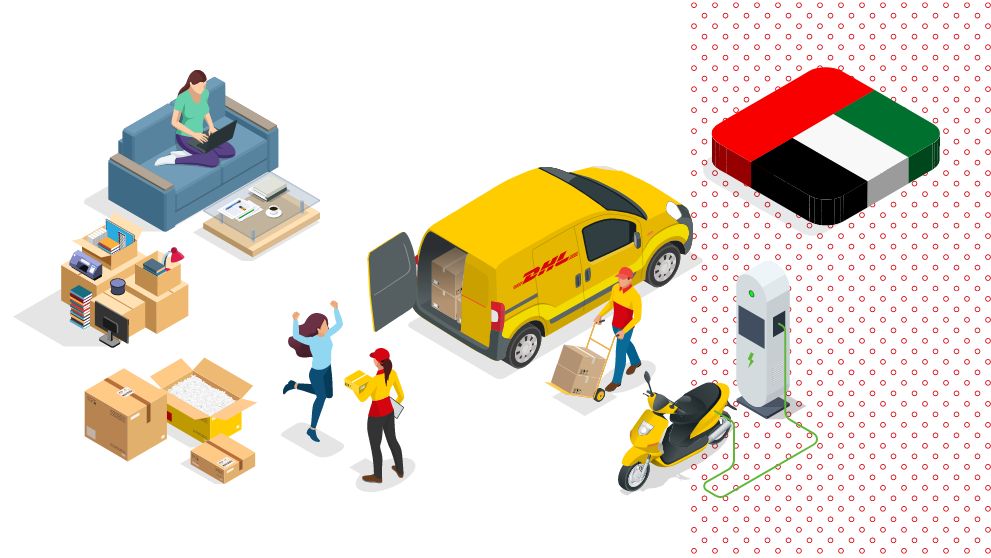
2. Offer a fast delivery service
For consumers in the UAE, fast delivery is essential. When exporting to the UAE, your e-commerce business should partner with a reliable international logistics provider – such as DHL.
3. Excellent customer service is vital
Service is a particular focus in the UAE. If your e-commerce business can provide a seamless customer journey, you have a much better chance of fostering customer loyalty and repeat business.
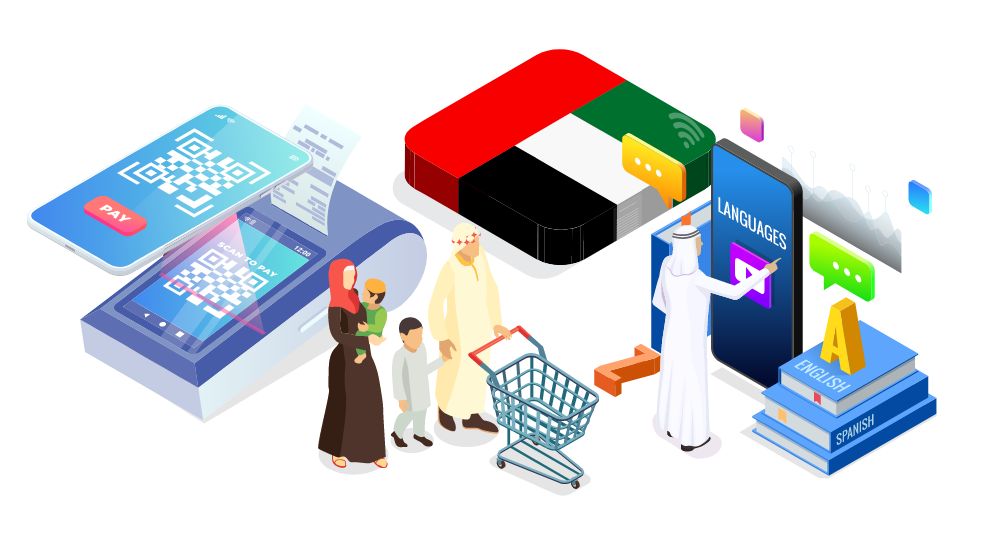
4. Localize your webstore
A key way of improving your service – and growing sales faster – is to offer your webstore in the local language. You should also provide local payment options if possible. And because shopping by smartphone is growing so quickly, make sure your webstore is mobile-optimized.

5. Maximize social media
Online and mobile has very high penetration in the UAE, so use digital marketing channels to attract and convert potential customers. TikTok, Meta, LinkedIn and YouTube are all popular platforms in the UAE.
Use a logistics company that knows the UAE
When exporting to UAE, it’s important to partner with a provider who understands the local market and culture. While many aspects are straightforward, the UAE still has some unique challenges and sensitivities. DHL can help you deliver seamlessly and satisfy the demanding UAE consumer.
Get started with DHL
We can help you start exporting to the UAE. To make it easier for you to get your shipments through customs, we offer a free Global Trade Services Toolkit.
You can also figure out total shipping costs, including duties, taxes and other import fees, using our Landed Cost Calculator.
Feeling inspired and ready to sell to the UAE?
First stop - open a DHL Express Business Account for expert international shipping advice and competitive rates.
Apply for an account

